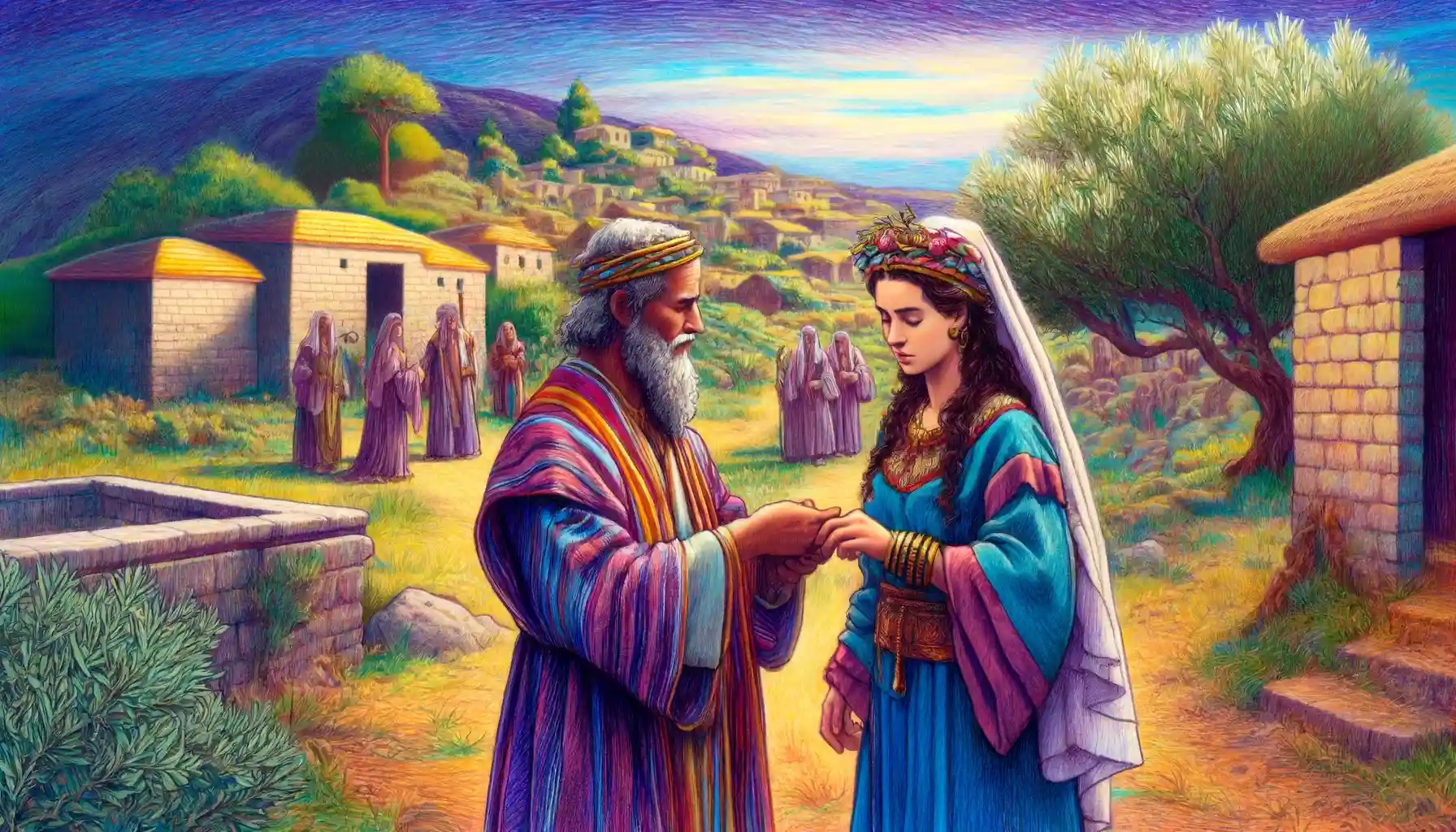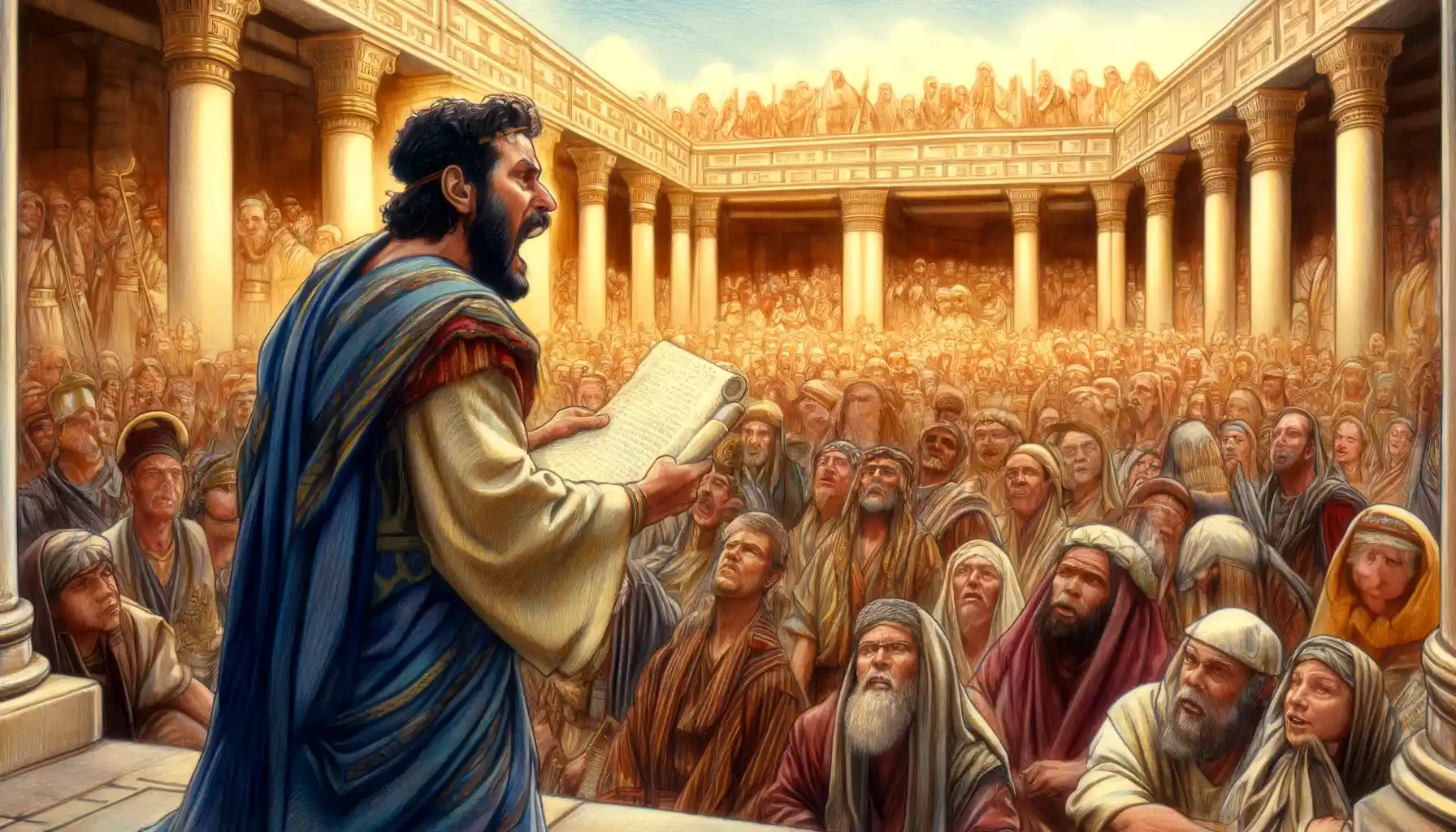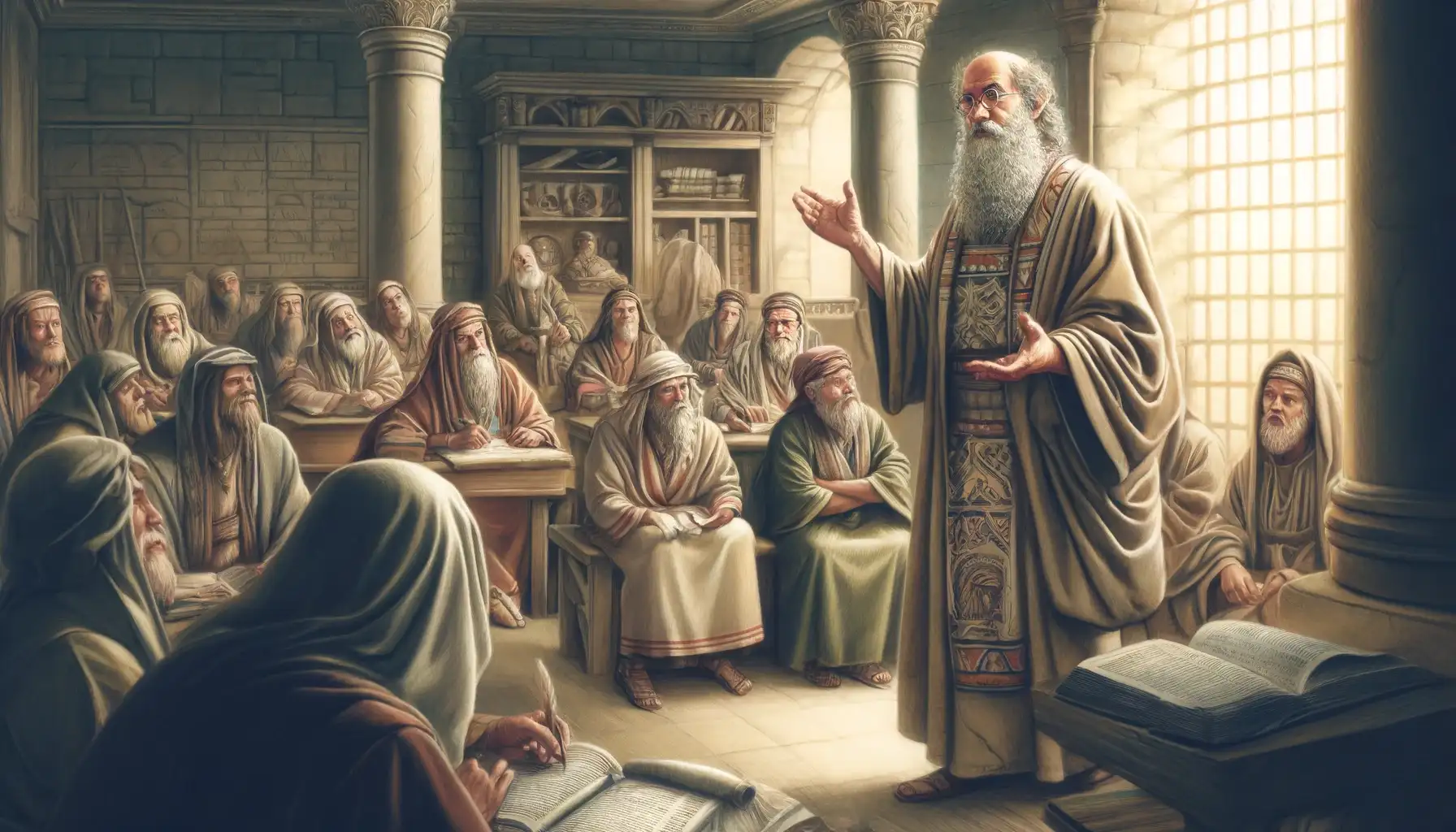The book of Obadiah’s focused message on judgment and hope offers insights into the prophetic views of justice and the restoration of God’s people.
The Book of Amos remains relevant today as a call to social responsibility and justice within religious practice.
The Book of Joel provides a rich tapestry of prophetic insights, balancing stern warnings with hopeful promises, making it a text of significant religious and moral teachings.
The Book of Hosea offers profound insights into the complexities of God’s character and His expectations for a faithful, loving relationship with His people, making it a critical text for understanding biblical prophecy and theology.
Ezekiel’s messages of doom are balanced with his visions of future hope, making it a deeply complex and influential prophetic book within the biblical canon.
Jeremiah’s messages, marked by their intensity and range from despair to hope, offer a deep exploration of the challenges and responsibilities of being in a covenant relationship with God.
Isaiah’s writings are celebrated for their literary beauty, depth of theological insight, and their prophetic vision into the future of God’s world.
The Song of Solomon stands out in the biblical canon for its unabashed celebration of love, offering a poetic testament to the strength and beauty of this universal human experience.
Ecclesiastes provides a philosophical exploration that complements the more straightforward moral teachings found elsewhere in biblical texts, offering a meditative approach to understanding life’s deeper meanings.
The Book of Proverbs provides practical instructions for living a life characterized by wisdom, integrity, and righteousness, making it a valuable resource for spiritual and ethical development.










